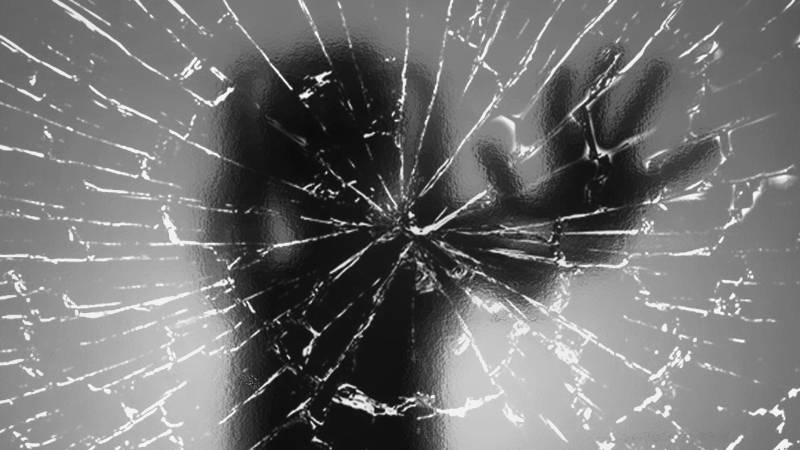
In a society like ours, women and children sit at the lowest rung of the social hierarchy and, therefore, are among the most vulnerable. Children, especially, are more vulnerable than all other segments of society.
If the victims are from impoverished or underprivileged social classes, the power they wield is infinitely less than the power the perpetrator holds. Add a layer of religion to the status of the perpetrator, and we have a near-invincible combination that even the powerful find hard to stand up to, let alone pre-teen students. Because of this, even if these people commit heinous crimes like rape on children, there are fat chances that they would simply walk away without facing any punishment.
Recently, a video emerged on social media and quickly went viral (April 1, 2024). People called on the authorities, especially Punjab's first-time chief minister, Maryam Nawaz, to take immediate action to protect the child and his family and punish the criminal.
The video shows a group of children sitting around a man who picks up a child and begins molesting him. Further investigation showed that the video was from a seminary, and the man in the video was a cleric.
The child had probably gone to the seminary for a religious session, as children often do in Pakistan. Since it is the Holy Islamic month of Ramadan, children go to seminaries to attend religious lectures, read the Holy Quran, and (learn to) pray. This is what the child's parents had sent him to the seminary for. Both the child and the cleric were fasting in Islam's holiest month, which asks all believers to refrain from sins and take the time to repent and rethink their choices.
Unfortunately, certain criminal elements cannot be restrained from committing heinous crimes, even in the month of Ramadan. They probably feel secure that they will not get caught or, if they are caught, escape punishment, as has become the norm in society.
Pakistan needs to review and revise laws to protect children and make them more effective in doing what they are supposed to do, which is protect children and punish the perpetrators
The comfort with which this man casually commits a crime against the child means he is habitual and has escaped accountability enough times that he is no longer afraid to do so in front of others. It also means that others around him are afraid of him and have been victims of the same crime. The confidence with which he acts against a helpless child is repulsive.
Fortunately, someone in the room had had enough of his criminal activities and decided to capture him in the act, which led to the footage being leaked. It was a brave act that could probably save many others from this man.
Interestingly, as the video went viral, several people, probably his peers, rallied around the perpetrator, pressuring the father to forgive the cleric. At the same time, others shared video messages advising people not to falsely accuse someone of a heinous act.
Strangely, the safety of a child is not a priority for some people; their moral compasses do not record child molestation and sexual abuse as a serious crime and sin.
Is there a comparison between video evidence of a child being molested and an alleged false accusation? It seems the supporters of this paedophile should rethink their stance as it only helps to embolden sexual predators preying on the weak and vulnerable – in this case, the children.
Unfortunately, this is not the first case of child sexual exploitation in Pakistan. We have seen this happen repeatedly in Pakistan. To mention a few due to lack of space: In August 2023, a minor girl was raped and left to die in the house of a local pir - spiritual leader - in Khairpur, Sindh. The crime and the casual attitude of the criminals was obvious in footage caught on the CCTV camera installed in the influential pir's house, which shows the confidence of powerful criminals despite the available evidence.
In April 2022, a seven-year-old boy was raped and murdered while his body was dumped into a 40-foot deep pit; in June 2021, a case was registered under Section 377 (unnatural offences) and Section 506 (punishment for criminal intimidation) of the Pakistan Penal Code against a cleric - one Mufti Azizur Rehman – for sexually assaulting a student. He was caught on video, like this recent case. The list is endless – in 2020, a two-year-old girl was raped and murdered; in September 2019, another cleric Maulvi Liaquat confessed to raping a minor boy multiple times in a mosque.
Pakistan needs to review and revise laws to protect children and make them more effective in doing what they are supposed to do, which is protect children and punish the perpetrators.
Article 37(a) of the Constitution states that "no child shall be subjected to torture or other cruel, inhuman or degrading treatment or punishment." Then why does it seem criminals feel safer than those they terrorise? Why do socially stronger people enjoy leniency while the victims and their families bear the burden of the crime?
The authorities should take real measures that not only show results but ensure that people like the cleric are not allowed to walk free to continue preying on other children. Punishment should be according to the severity of the crime and be an example to others. The survivor (victim) and family should be given substantial compensation and protection to continue with their lives without fear.
The authorities should ensure that poverty is not a barrier to receiving swift justice so that the vulnerable don't keep falling victim.

